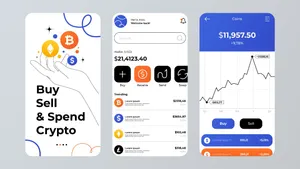The standard U.S. stock market opens at 9:30 AM and closes at 4:00 PM EST. However, for serious traders, the ability to act on breaking news, earnings reports, or global market shifts outside this window is crucial. This necessity has made access to extended hours (pre-market and after-hours) a key competitive feature among brokers.
The choice of brokerage depends on whether you prioritize the earliest possible start time (like 4:00 AM) or true, round-the-clock trading (24/5).
Defining Extended Hours Trading
The two main extended sessions are:
| Session | Time Window (EST) | Purpose |
| Pre-Market | Varies: From 4:00 AM to 9:30 AM | Used to react to overnight news, European market open, and early company announcements. |
| After-Hours | Varies: From 4:00 PM to 8:00 PM | Used to react to U.S. market close, earnings reports released after the bell, and late-breaking news. |
The Key Risk: Lower Liquidity
Extended hours trading is riskier. With fewer participants, liquidity is lower, which leads to wider bid-ask spreads and increased price volatility. This makes order execution highly sensitive.
Broker Comparison for Extended Access
This table highlights the primary time windows available, excluding the standard 9:30 AM to 4:00 PM EST trading day.
| Brokerage | Pre-Market Start (ET) | After-Hours End (ET) | Key Feature |
| Moomoo | 4:00 AM | 8:00 PM | Earliest standard access with strong global data and charting. |
| Webull | 4:00 AM | 8:00 PM | Earliest standard access with advanced options tools and charting. |
| Charles Schwab (thinkorswim) | 7:00 AM | 24 Hours / 5 Days | Continuous 24/5 trading for 1,100+ stocks and ETFs. |
| Interactive Brokers (IBKR) | 4:00 AM (varies) | Varies, up to 8:00 PM+ | Professional execution and global market depth. |
| Fidelity | 7:00 AM | 8:00 PM | Reliable execution and strong platform for core extended hours. |
1. Moomoo
- Best For: Earliest Start Time, Clean UI, and Global Data.
- Trading Window: Offers one of the earliest pre-market start times in the industry, beginning at 4:00 AM EST and running until 8:00 PM EST.
- Technology: Moomoo is often praised for its clean, modern user interface (UI) and mobile experience. It provides extensive real-time Level 2 market data, which is highly valuable for understanding supply and demand during low-liquidity extended sessions.
2. Webull
- Best For: Earliest Start Time, Advanced Charting, and Options Tools.
- Trading Window: Matches Moomoo with a highly competitive extended hours window, running from 4:00 AM EST to 8:00 PM EST.
- Technology: Webull is geared toward active traders, providing powerful desktop and mobile charting tools, a wide range of technical indicators, and a platform that is particularly strong for high-frequency options and margin trading.
3. Charles Schwab
- Best For: True 24/5 Continuous Trading and Platform Reliability.
- Trading Window: While standard Schwab platforms offer 7:00 AM to 8:00 PM ET, their thinkorswim platform provides 24 hours a day, 5 days a week (24/5) continuous trading for over 1,100 popular U.S. stocks and ETFs (including all S&P 500 components).
- Key Advantage: Schwab's 24/5 capability is the most extensive non-futures trading window available, allowing you to react to news at any time of day or night (Sun. 8:00 PM – Fri. 8:00 PM ET).
4. Interactive Brokers (IBKR)
- Best For: Professional Traders and Global Market Depth.
- Trading Window: IBKR offers early trading, often starting at 4:00 AM EST for some instruments, and provides access to more non-standard, extended-hours markets than most other brokers.
- Execution: IBKR is prized for its professional-grade SmartRouting, which seeks the best possible execution among numerous exchanges and dark pools, a vital feature when hunting for liquidity during low-volume sessions.
5. Fidelity
- Best For: Simple, Reliable Access and Overall Experience.
- Trading Window: Offers a solid, reliable window from 7:00 AM EST to 8:00 PM EST.
- Benefit: Fidelity is a trusted giant known for its strong execution and robust platform stability, making it a reliable choice for the less-frequent investor who needs to act on market news after hours.
Essential Rules for Extended Trading
Trading outside regular hours requires different rules than trading during the day due to the nature of low-liquidity sessions:
1. Limit Orders are Mandatory
You must use a Limit Order during extended hours. You cannot use a Market Order.
- Limit Order: Specifies the absolute worst price you are willing to accept for a trade. This protects you from the sudden, sharp price swings caused by low liquidity.
- Market Order: Asks the broker to execute the trade immediately at the best available price. During extended hours, this could result in a devastating execution price far from the stock's last quoted price.
2. Supported Securities
Not all stocks are available for extended hours trading. Generally, only the major exchange-listed stocks and ETFs have enough liquidity. Always check your broker's list of eligible securities for extended trading.
Conclusion
The best choice depends on your strategy:
- For the earliest jump on global market news (4:00 AM ET): Choose Moomoo (if you prefer a cleaner UI and global data) or Webull (if you need more advanced options/technical charting tools).
- For round-the-clock trading and a mature, feature-rich platform: Charles Schwab (via thinkorswim's 24/5 trading).
- For professional-grade execution and global market breadth: Interactive Brokers.






